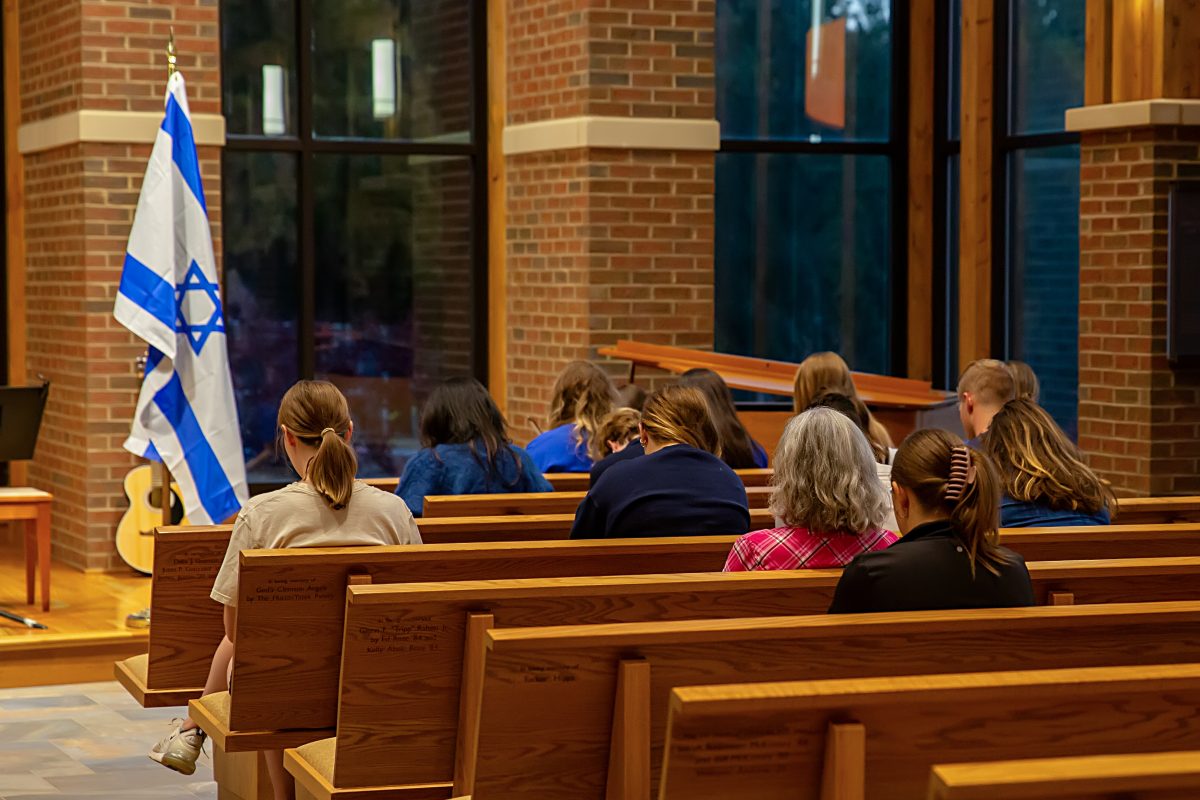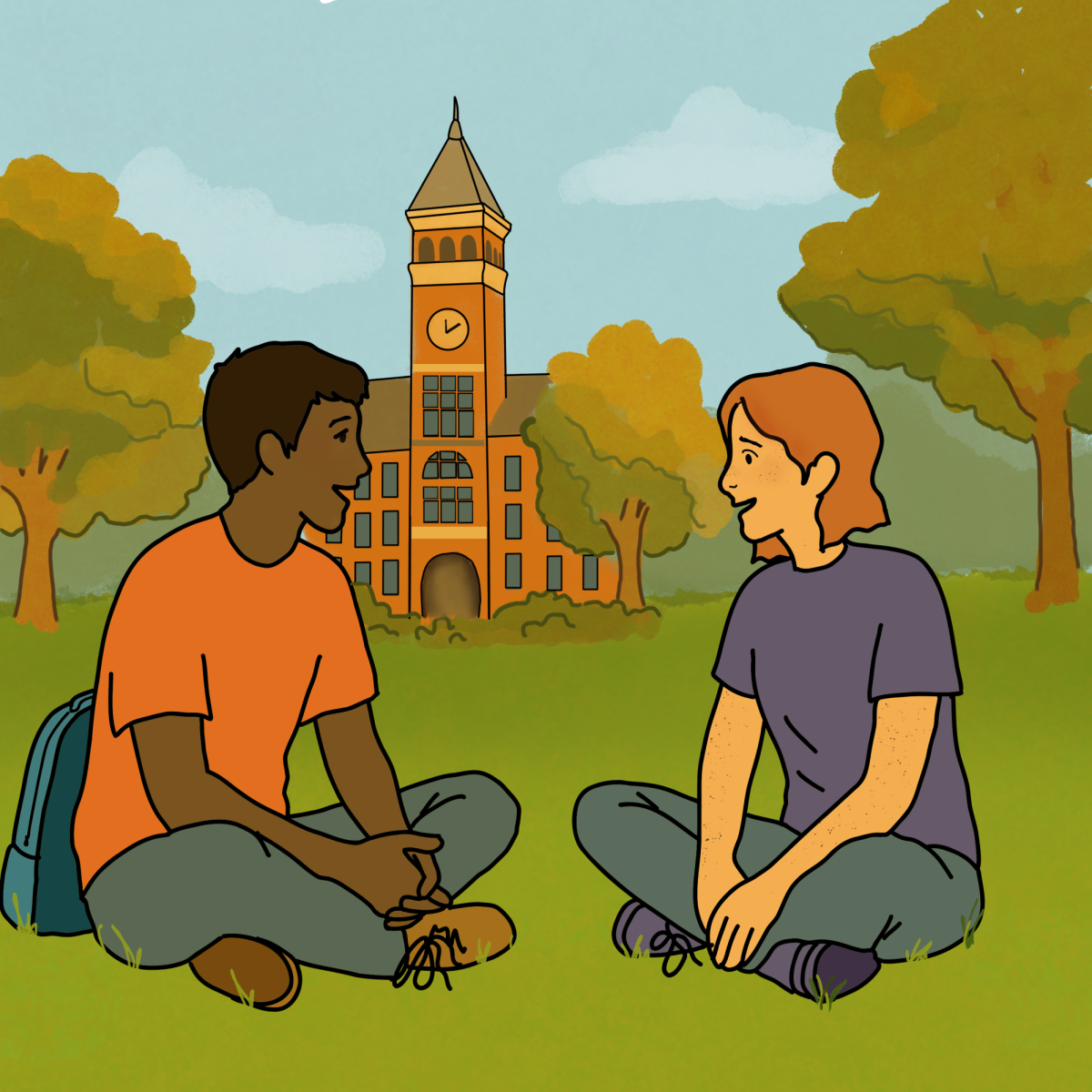With the recent successes of sports teams here at Clemson, the phrases “Clemson Family” and “All In” can be heard around the country from alumni, students and casual fans alike. But, a simple look around campus indicates that these phrases are often nothing more than empty words. Certain individuals take it upon themselves to try to live up to these words; none as vocal as Clemson football coach Dabo Swinney, who once stated,
“‘All In’ — it’s not just a slogan… it’s a way of life here, and it’s about being committed to just doing the best you can with what you’ve got.”
While coach Swinney tries to live up to this standard, the glaring discrepancy between athletes receiving everything they could need and the students who struggle daily just to get by still looms above the student body.
Athletes are fed at the university’s expense, multiple times per day to keep them at peak athletic performance. Conversely, the university sees no issue with regular students struggling with food insecurity. Food insecurity within the student population is a major issue that needs to be addressed urgently.
Food insecurity and hunger are two major issues worldwide that make it incredibly difficult to realize when someone is struggling. I learned this lesson early on, growing up around Atlanta and seeing people of all races, ethnicities, sexes and creeds struggling to put food on the table for themselves and their loved ones.
Coming to Clemson as a freshman, I immediately noticed the stark differences between Atlanta and Clemson. Students drive around in brand new cars, wear designer clothing, and never worry about their next meal. I partially blame my own naivete in assuming that most people on campus are aware of this issue. Over time, I have come to realize that many of the students here have the luxury of never having to experience food insecurity and don’t know someone struggling with this issue.
Many in-state students don’t know that in South Carolina alone, over 500,000 people struggle with food insecurity, according to statistics gathered by Feeding America in 2019. Across the United States, roughly 39% of college students reported food insecurity while at university, based on a 2019 report from the National Postsecondary Student Aid Study.
Although food insecurity cannot be boiled down to a mere stereotype, think about the effects on your community when you’re in a large lecture class. Sitting around you could be numerous students who are unsure of when they will eat next. Again, I must ask, how can a university who claims to be “All-In” on creating a family environment so easily overlook such a vulnerable group? Students who are here and struggling to get by should be offered every ounce of support from the university. Instead of worrying about when they’ll be able to eat again, these students should only be worried about classes and the advancement of their future.
While the slogans chanted by the masses may just be words to them, a few selfless students took the idea of “Clemson Family” to heart, setting out to make a positive change in the Clemson community. In 2015, a student-led organization called the Paw Pantry was established to combat food insecurity within the Clemson student body. This organization, located at233 Sirrine Hall, is entirely student-run and provides non-perishable foods, household/hygienic products and school supplies on a “no questions asked” basis to anyone with a valid Clemson ID.
On top of providing these goods to students in need, they also have a Swipe Out Hunger program, which entitles students to five free meal swipes, with no questions asked and no expectation of repayment. This amazing organization is currently funded and supported through donations from students and alumni, but it does not receive any funding or support from CUSG or the administration.
I am aware that student organizations have specific rules to acquire funding, but aside from the monetary aspect, the university moves Paw Pantry’s location regularly, making expansion difficult, if not impossible. How can the Paw Pantry grow to include a wider range of options to address the nutritional needs of students if they are expected to move every semester to a different location? In addition to all the aforementioned neglect, the administration put forth minimal effort to advertise the services these students selflessly provide. Even worse, the elected officials representing Clemson students seemingly cannot be bothered to even reach out to the organization in support, let alone highlight their service with their wide-reaching social media influence.
Clemson’s use of the family trope is, at the moment, purely surface level. We, as the students of Clemson University, must push for the change we wish to see or fall victim to being a part of the cycle that has been going on for decades. While I have used this opportunity to call out the current student government and administration for their inaction, this article is by no means an attack on them. Rather a call to action for the administration and the elected student representatives to face this challenge head-on. Miller-Razavi strives to give Paw Pantry the support and recognition it deserves and to raise awareness and promote the utilization of all on-campus services every student is entitled to access. Even if you choose not to vote for us in this election, please remember to do your part as a member of the Clemson Family and help your fellow tigers in need.













